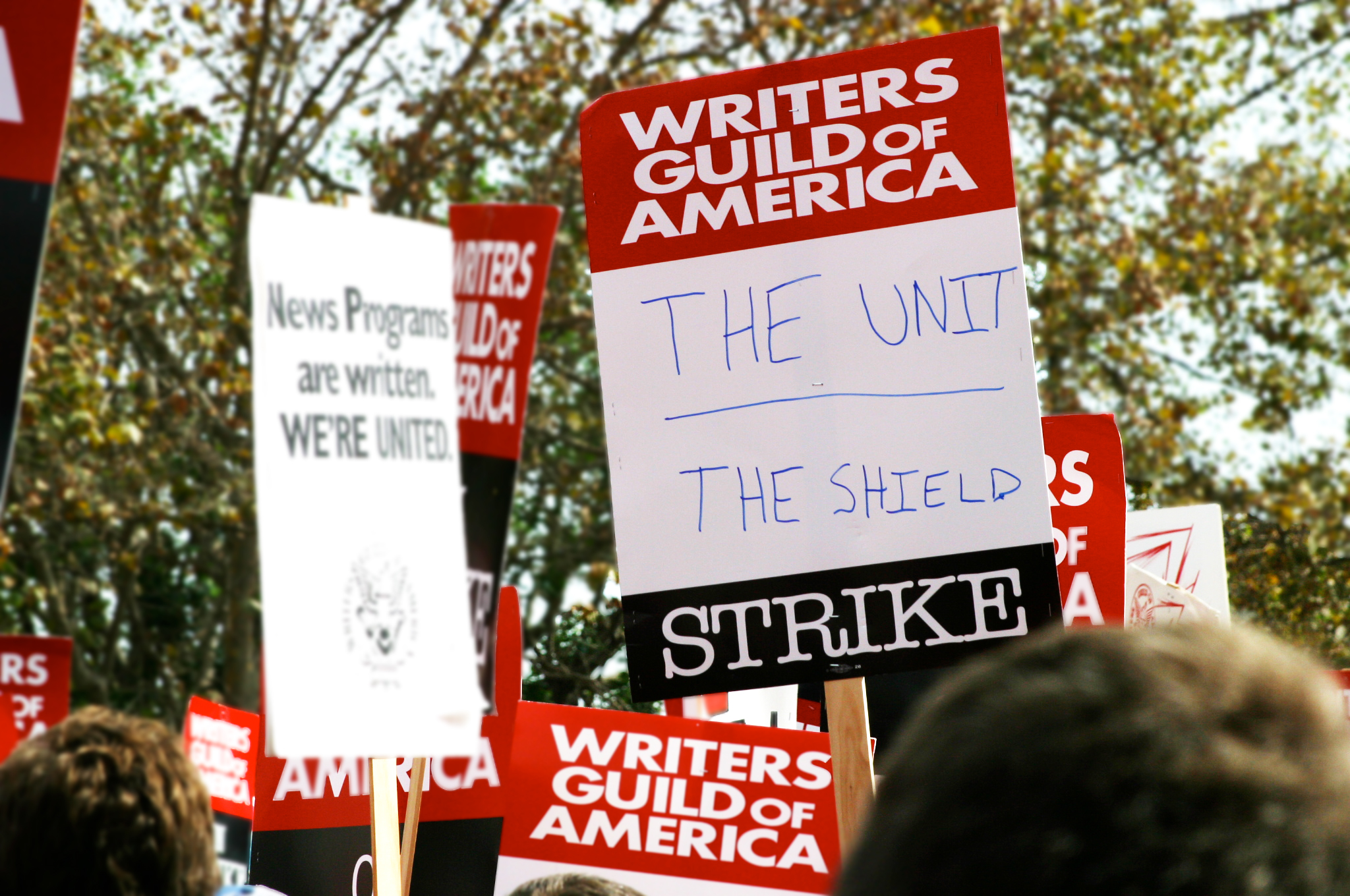Amid media layoffs and a terrible job market, the entertainment industry is in deep muddy waters for labor exploitation. On Tuesday, May 2nd, the Writers Guild of America (WGA) stepped onto the streets forming picket lines due to unfair labor practices by large entertainment networks. Writers all across the industry, from late-night to animation staff writers, are in their second week of the strike. Yet many viewers are unaware of what will come their way and what the strike means for the rest of entertainment history.
The WGA is a labor union that protects writers in film, television and radio. The WGA has a contract with the Alliance of Motion Picture and Television Producers (AMPTP). The AMPTP represents major entertainment companies such as Paramount Pictures, Warner Bros. and Walt Disney Studios. The WGA’s contract with the AMPTP ended on May 1st, leaving the writers with the opportunity to bargain for a new contract. However, this strike was a long time coming.
With the adoption of streaming services and the boom of a push for online streaming in 2020, writers for these platforms are getting a cut of what they would usually make on air. Writers’ pay per episode, residuals, are only a one-time payment with streaming services, unlike reruns. On television, writers get residuals every time an episode is aired, leaving writers for Paramount+ and Netflix with less pay than they would on-air.
Writing rooms are also facing fewer writers thanks to company demands, yet are assigned the same amount of work and time to finish episodes as they would with a full set of staff writers. The reduction of this workforce is also feared with the adoption of artificial intelligence (AI) to fill in the gaps. AI threatens writers with writer’s rooms becoming smaller and job stability.
The WGA is currently in the bargaining stage of a new contract with the AMPTP. The WGA is asking for an increase in compensation with a higher residual base minimum as well as higher initial pay for streaming service writers. For now, the AMPTP is rejecting the offer of weekly pay for writers, as writers’ pay is spread out in various ways for a project. The proposal also includes a minimum number of writers for episodic television, leading to larger writers’ rooms and taking the pressure off small writers’ rooms. AMPTP also rejected new contract inclusions of pension and health for all team members and the WGA’s asking to ban AI in the writers’ room. More details about base pay, residuals and other proposed ideas can be found within the WGA’s proposal chart on wgacontract2023.org.
As this strike seems to not be coming anywhere close to a final deal, viewers will find a drastic shift in upcoming television and film. Reality TV will boom. Since the last WGA strike lasted over three months, it is expected this strike will likely look similar. From the 2007 strike, TV saw shows such as “Wipeout” and “The Celebrity Apprentice” flood the screen at home. These shows are cheap and easy to make — so writers are practically out of the picture.
Viewers will also see awkward writing or terrible endings to their favorite TV shows. Media companies will turn to AI to complete their unfinished projects and the upcoming season to be aired later this year.
The AMPTP has no reason to wait any longer to give writers what they need. Fair compensation is pure decency. The AMPTP has blamed the economic crisis and no surplus to fund the WGA’s proposals, yet the AMPTP’s protected company executives make significantly higher wages in comparison to the backbone of the industry — its writers.
To learn more about the strike visit the WGA’s website, wgacontract2023.org.








